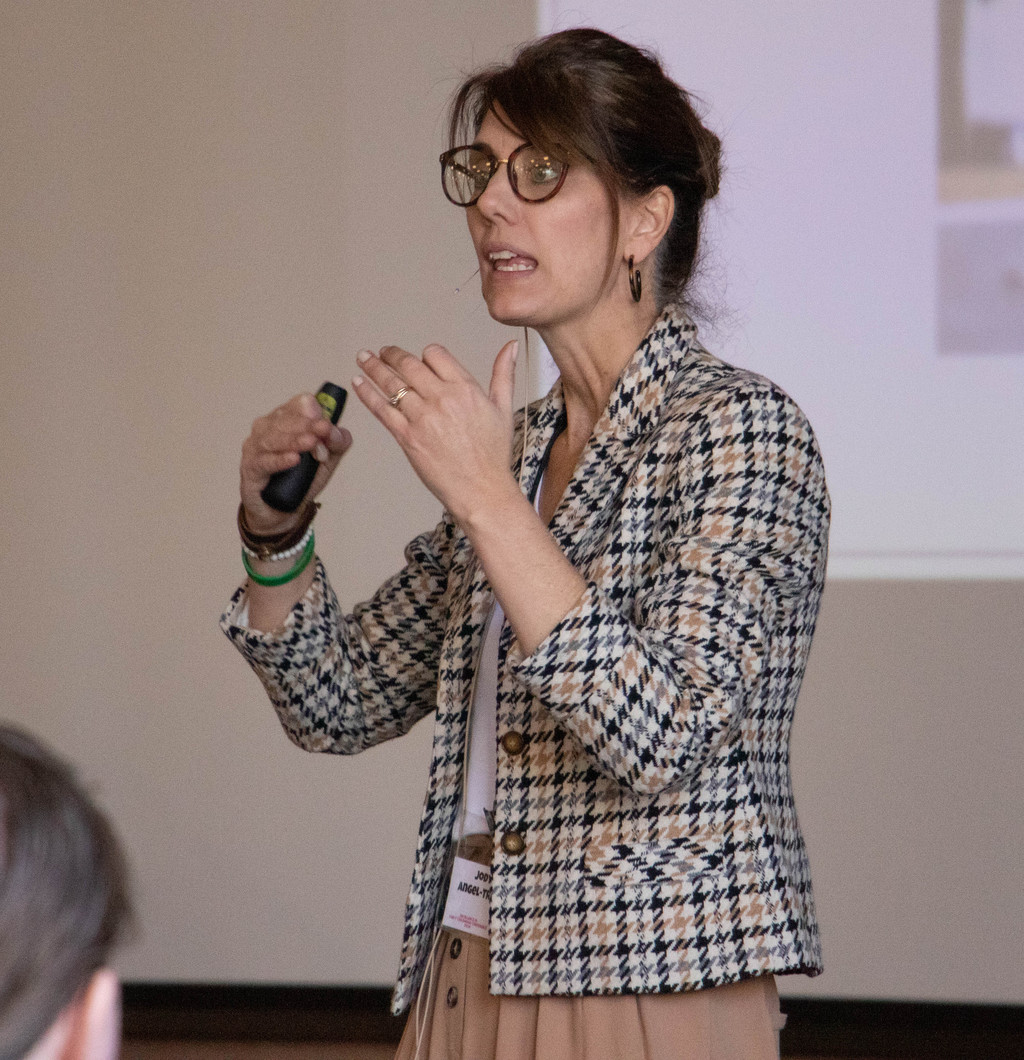Early Childhood Conference speaker shares ways to help traumatized children

CHADRON – Dr. Jodi Angel-Trejo, a Licensed Independent Mental Health Practitioner from Kearney, Nebraska, told nearly 100 attendees at Chadron State College’s 31st annual Excellence in Early Childhood Conference Saturday in the Student Center that they are the most important teacher in a traumatized child’s life.
Dr. Kim Madsen said about 12-15 CSC students attended pre-conference sessions on Friday and the main session on Saturday. She estimated 35-40 providers and support staff in attendance were CSC alumni. The annual conference provides informational sessions for all professionals who provide private or public childcare in the region.
Angel-Trejo told conference attendees although children are resilient they need adults who help them heal.
“We are rewiring the neural networks of traumatized children. They don’t trust and you are like an architect helping them make connections about world around them based on their relationships with adults. Children can’t heal on their own. Positive back and forth interaction with you develops the child’s brain like a roadmap for how they perceive incoming information,” Angel-Trejo said.
Although stressed children may not be as profoundly affected as those who have experience trauma, Angel-Trejo said it is equally important to address. She said children are lagging 18 months to two years in social development compared to children 40 years ago because most families do not have control of the electronics in their lives.
Angel-Trejo emphasized trauma is a brain issue, not a discipline issue. She said traumatized children send out sonic pings like a submarine trying to interpret social cues, five times more than a normal child.
“It’s normal to spend 30 percent of your time in repair and connect mode. Be accountable, humble, and apologetic if you have not handled something as well as you could have. Traumatized children are hyper alert, hyper aroused, hyper vigilant, and anxious. They can feel like Sisyphus, pushing a rock up a hill every day. With trauma, the rock seems bigger, out of proportion,” she said.
Angel-Trejo asked childcare professionals to give kind, gentle, and clear responses to traumatized children in spite of how trying they can be.
“I spill coffee because that’s what’s in my cup. Be aware of what’s in your [emotional] cup. Try to fill it up with humility and gratitude. Because at the end of a hard day that’s what is going to spill out. This is a hard business,” she said.
She likened the work of calming a traumatized child to that of being a detective.
“Ask the child what was overwhelming them. They might not know, but be emotionally available. Trauma kids are rigid because they are trying desperately to have control. Engage their cooperation. Be creative. Make things up. If you find a method that works with dysregulated children use it. You are teaching them, in tolerable doses, how to increase their flexibility,” Angel-Trejo said.
—Tena L. Cook Interim Marketing Coordinator
Category: Campus News, Education
